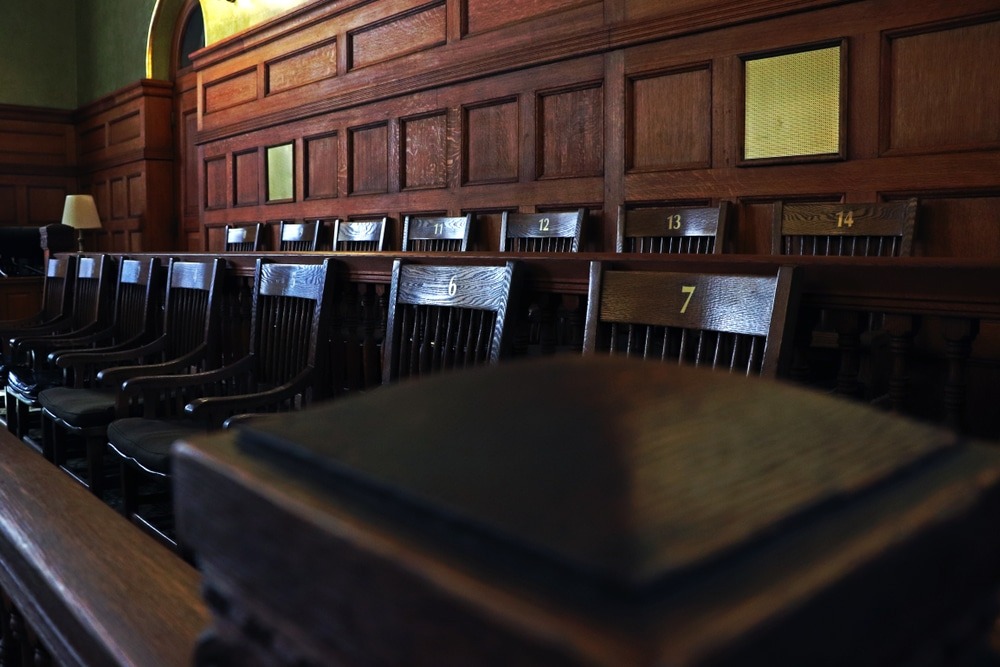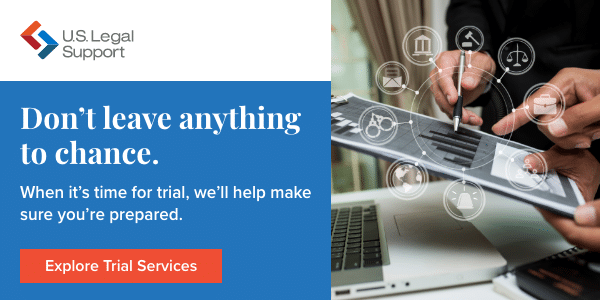Jury Research: Methods and Best Practices

Law students spend years training to evaluate details and learn procedures that don’t always fall under the umbrella of common sense to laypersons. The most important issues that seem obvious to attorneys can be ignored by jurors who are captured by details with little relevance to your arguments.
Jury research is how attorneys attempt to bridge that gap and understand how prospective jurors will think and react to what they see and hear during a trial.
What Is Jury Research and Why Is It Important?
Companies that sell products to the public spend billions collectively to figure out who their customers are, what messages will catch their eye, and how they make their buying decisions.
Jury research is a similar practice for trial attorneys and firms. In a bird’s eye view, it’s accomplished by:
- Identifying key characteristics of the potential jury pool
- Gathering information from a larger sampling of people with similar characteristics
- Analyzing their responses for trends and useful information
- Applying that data to trial preparation
This research can inform how to select a jury and helps ensure that the insights gained from research are effectively utilized to form a fair and impartial jury panel for your trial. You can’t take a practice run of your arguments and demonstratives in front of your actual jury panel, so investing in research to predict responses and behavior must be completed independently.
Methods of Conducting Jury Research
Research that involves people and their opinions and behaviors breaks down into two broad categories: qualitative and quantitative.
Qualitative research, such as focus groups and mock trials, tends to be more personalized and in-depth with smaller groups. Quantitative deals with larger groups and more standardized information gathering (such as surveys) that allow for deep-dive data analysis.
Traditionally, jury research has been concentrated on the qualitative, but using both approaches is ideal when resources allow.
Surveys and Questionnaires
Questionnaires and surveys can be completed with a larger audience and lower time and cost investment. They can be done by phone, mail, or online with inbound links from email campaigns and digital advertising.
Mock Trials and Focus Groups
Mock trial focus groups allow you to dedicate time with a smaller group to get their feedback after reviewing the opening statement or closing argument, witness testimonies, or evidence and demonstratives.
They often run from a few hours to a full day and offer compensation to participants. Professionals who organize these types of jury research can:
- Help identify the jury selection criteria and goals
- Draft effective scripts and questions
- Analyze nonverbal communication and group dynamics
- Report on results and outcomes to recommend strategies
Analyzing Jury Research Data
You’ve gathered this mountain of information—now what? Jury research isn’t for casual reading. Data analysis and reporting professionals slice and dice the responses to generate synthesized, summarized results that are actionable for the issues and stage of the case at hand.
Interpreting Demographics and Attitudes
Demographics can cover an enormous range of details such as age, affiliations, education, career, family, and living situations.
At an individual level, demographics plus experiences plus some mysterious combination of nature and nurture make humans unique. At a group level, however, we can identify how likely individuals are to be in alignment with beliefs, habits, and behaviors based on their combined demographics.
Analyzing these intersections during jury research puts attorneys in the best position to:
- Create trial-specific juror profiles based on demographics
- Poll current public opinion and community values
- Decide whether their client can get a fair trial in this venue
- Identify red-flag issues, arguments, and language within their potential jury pool
Applying Insights to Case Strategy
The earlier you invest in jury research, the more opportunity to influence the case outcome.1 In addition to preparation leading up to a courtroom, jury research helps legal teams understand and leverage the chances of success at trial during settlement negotiations.
Jury research allows attorneys headed to court to:
- Identify problematic characteristics and help draft useful voir dire questions
- Determine particular word choices, suggestions, or beliefs to avoid or leverage
- Try out arguments in front of a simulated jury panel
- Gather detailed feedback on responses to your arguments and storytelling
- Refine persuasive themes
See more on how to conduct voir dire in our guide.
Partner with the Experts at U.S. Legal Support
Jury research can guide your trial presentation and help you select the most effective communication style, tone, and keynotes. When you work with the trial services division of U.S. Legal Support, you have access to experts in litigation preparation including jury research and consulting.
As the home of elite trial service and consulting firm TrialQuest, the team at U.S. Legal Support comprises decades of experience in more than 20,000 high-risk trials, arbitrations, and mediations across nearly all practice areas and jurisdictions. We support nationwide attorneys and firms with jury research and consulting, mock trials, witness preparation, trial graphics, demonstratives, and case presentation and technology services.
Contact us today by phone, email, or website request form to discuss how we can help with your jury research and other litigation support services.
Sources:
- MoloLamken. Frequently Asked Questions – Jury Research. https://www.mololamken.com/assets/htmldocuments/FAQs%20-%20Jury%20Research.pdf

Editoral Policy
Content published on the U.S. Legal Support blog is reviewed by professionals in the legal and litigation support services field to help ensure accurate information. The information provided in this blog is for informational purposes only and should not be construed as legal advice for attorneys or clients.


